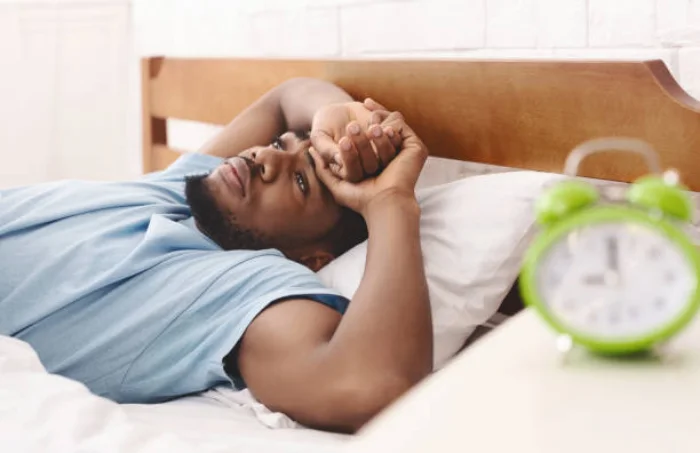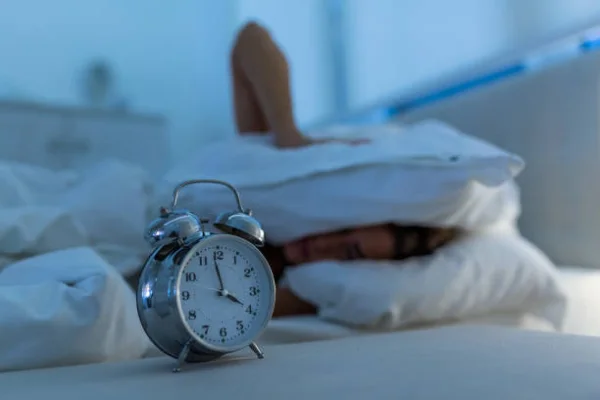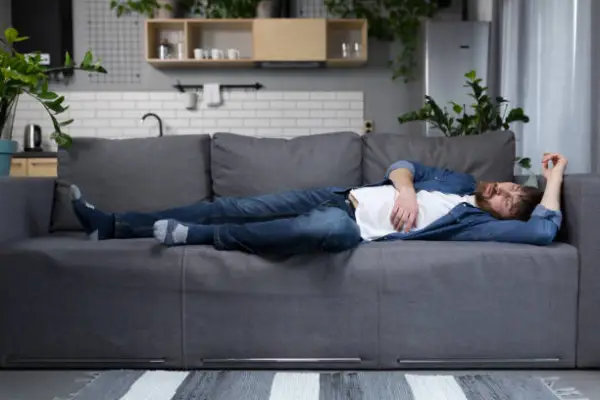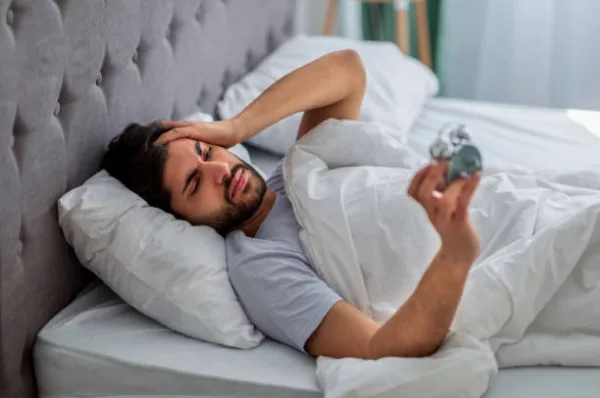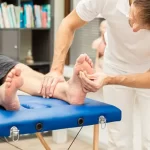Do you struggle to fall asleep at night or feel exhausted during the day? You may be experiencing a sleep disorder. Sleep disorders are common and can affect anyone, regardless of age or gender.
Understanding the different types of sleep disorders and their symptoms is crucial in identifying if you have one. Sleep disorders include insomnia, sleep apnea, restless leg syndrome, and narcolepsy.
Insomnia is characterized by difficulty falling asleep or staying asleep. Sleep apnea occurs when your breathing is interrupted during sleep, causing loud snoring and extreme tiredness during the day.
Restless leg syndrome causes an uncomfortable sensation in your legs, making it challenging to relax and fall asleep. Narcolepsy involves sudden episodes of uncontrollable daytime sleepiness and muscle weakness called cataplexy.
Recognizing these symptoms are easy to determine whether you need to seek medical attention for a sleep disorder. So keep reading for detailed information.
How to Know if You Have Sleep Disorder: Types & Symptoms
Sleep disorders affect millions of people in the world. If you’re one of them, you may experience difficulty falling or staying asleep or have nightmares or sleepwalk. Below are some types and symptoms of sleep disorders, so you can take action.
- Excessive Daytime Sleepiness:
- Insomnia:
- Sleep Apnea:
- Restless Legs Syndrome (RLS):
- Narcolepsy:
- Parasomnias:
- Circadian Rhythm Sleep Disorders:
1. Excessive Daytime Sleepiness:
Excessive daytime sleepiness can significantly impact your daily life. Unintentional napping or microsleeping can happen when you can’t keep your eyes open after a full night’s sleep. This puts you at risk for accidents at work and while driving.
Sleep disorders may cause excessive daytime sleepiness. Poor sleep hygiene or shift work can also contribute to this issue.
Seek medical attention if you’re experiencing excessive daytime sleepiness or other symptoms related to sleep disorders. You can improve your overall health and regain control over your daily activities with the right diagnosis and treatment.
2. Insomnia:
If you’re having trouble falling asleep at night or waking up frequently during the night, you may be experiencing insomnia. Insomnia is a sleep disorder manifested by difficulty sleeping even when the opportunity to do so exists.
It is influenced by various factors such as stress, depression, apprehension, medical conditions, or poor sleep habits. Ignoring insomnia can negatively impact your physical and mental health.
3. Sleep Apnea:
You may suffer from sleep apnea if you snore frequently and experience breathing pauses during sleep. This condition occurs when your throat muscles relax too much at night, blocking your airway and causing your body to wake up briefly multiple times.
Although sleep apnea can affect anyone at any age, it is more common in overweight or obese individuals and men. If left untreated, sleep apnea can lead to serious health issues, including high blood pressure, stroke, heart disease, and diabetes.
4. Restless Legs Syndrome (RLS):
Do you experience a persistent urge to move your legs, especially when resting or lying down? You might have Restless Legs Syndrome (RLS), a neurological disorder that causes uncomfortable sensations in the legs, such as tingling, crawling, or creeping.
This condition can significantly affect your quality of life by disrupting your sleep patterns and causing fatigue during the day. Fortunately, RLS is treatable, and you should seek medical attention as early as possible if you suspect you may have it.
5. Narcolepsy:
Narcolepsy is a neurological disorder that affects the ability of the brain to regulate sleep-wake cycles. Symptoms of narcolepsy include daytime sleepiness, hallucinations during sleep onset, sudden loss of muscle control triggered by strong emotions, and sleep paralysis.
Consulting with a medical professional for an accurate diagnosis and treatment options is important. Medication and lifestyle changes such as establishing regular sleep patterns and avoiding caffeine and alcohol can be effective treatments. Don’t let narcolepsy hold you back from living a fully awake life. Seek help today.
6. Parasomnias:
Don’t let parasomnias disrupt your sleep quality and rob you of the rest you deserve. Parasomnias are a group of sleep disorders that involve abnormal movements, behaviors, or experiences during sleep. These can include sleepwalking, night terrors, and REM sleep behavior disorder.
Sleepwalking is a common parasomnia that involves getting up and walking around while still asleep. This can be dangerous as individuals may harm themselves or others without awareness.
7. Circadian Rhythm Sleep Disorders:
Circadian rhythm sleep disorders cause disrupted sleep-wake cycles that aren’t in sync with the typical day-night cycle. This disorder occurs when your internal body clock is out of sync with the external environment, leading to difficulty falling asleep or waking up at desired times.
It can also cause persistent jet lag symptoms after traveling across multiple time zones. There are several types of Circadian Cycle Sleep Disorders, such as:
- Delayed Sleep Phase Syndrome (DSPS),
- Advanced Sleep Phase Syndrome (ASPS),
- Non-24-Hour Sleep-Wake Disorder, and
- Irregular Sleep-Wake Rhythm.
Each type has its own specific symptoms and treatment options. Circadian Cycle Sleep Disorder can be diagnosed and treated by a healthcare professional.
How to Get Relief from Sleep Disorder?
You need to maintain a consistent sleep schedule to get relief from sleep disorders. This means you should go to sleep and awaken simultaneously every day, including weekends. It helps maintain your body’s circadian clock and improves the quality of your sleep.
Maintain a Consistent Sleep Schedule:
Establishing a consistent sleep schedule is crucial to maintaining a healthy sleep-wake cycle. When you go to bed simultaneously every day, including on weekends, you teach your body when to sleep and wake up.
Keeping a regular sleep schedule also helps promote a better quality of sleep. Your body adapts to falling asleep at a specific time, making it easier to fall asleep and stay asleep. As a result, you’ll get more sleep and better sleep quality, leaving you feeling refreshed upon waking.
Create a Soothing Sleep Environment:
When creating a soothing sleep environment, eliminate distractions like bright lights and loud noises. A dark and quiet atmosphere signals your brain to wind down and sleep.
Blackout curtains or an eye mask can block out light, while earplugs or a white noise machine can drown out disruptive sounds. Also, maintain a comfortable sleeping temperature of 60-67 degrees Fahrenheit.
Medications and/or Sleep Supplements:
If you’re struggling with sleep issues, you can buy Diazepam Vallium 10mg to sleep better. Taking Diazepam Vallium 10mg may provide temporary relief. However, be aware of the potential risks and limitations of using medications or supplements for sleep.
Diazepam is a powerful sedative that can lead to physical or psychological dependence if used long-term. Follow your doctor’s instructions and don’t exceed the recommended dosage.
Practice Relaxation Techniques:
Relaxing before bedtime can be a game-changer for better sleep, and plenty of techniques can help ease your mind and body. If you find yourself constantly tossing and turning in bed, unable to relax or fall asleep, incorporating relaxation techniques into your daily routine before bedtime may be the solution you need.
Meditation, deep breathing exercises, progressive muscle relaxation, or listening to soothing audio can all help reduce anxiety and promote relaxation. These techniques work by calming your mind and body, slowing your heart rate, and reducing muscle tension.
Limit Stimulants and Electronic Devices:
You can improve your sleep quality by limiting stimulants like caffeine and electronics before bedtime. Caffeine can disrupt your body’s natural sleep cycle, making it harder to relax and get some sleep. Nicotine can also be a huge sleep disruption due to its stimulating properties.
Reduce your intake of these stimulants, and limit your use of electronic devices like smartphones, tablets, and computers before bedtime. These gadgets emit blue light that can decrease melatonin production, a hormone that helps regulate sleep-wake cycles.
Limiting your exposure to electronic devices late at night allows your brain to calm down and prepare for a more peaceful rest. Consider practicing relaxation techniques instead of staring at a screen before bed.
Don’t Let Sleep Disorders Ruin Your Health – Take Action Now
Sleep disorders can greatly affect our health and well-being; ignoring persistent sleep issues can worsen symptoms. Remember that there are different sleep disorders, each with a unique set of symptoms requiring personalized treatment.
Consult your healthcare provider if you think you have a sleep disorder so they can perform a thorough evaluation and recommend a treatment plan. So, prioritize getting enough quality sleep every night as it’s essential for optimal health and well-being.
Don’t ignore any signs or symptoms of sleep disorders. Instead, take action immediately to improve your sleep quality and overall health.

